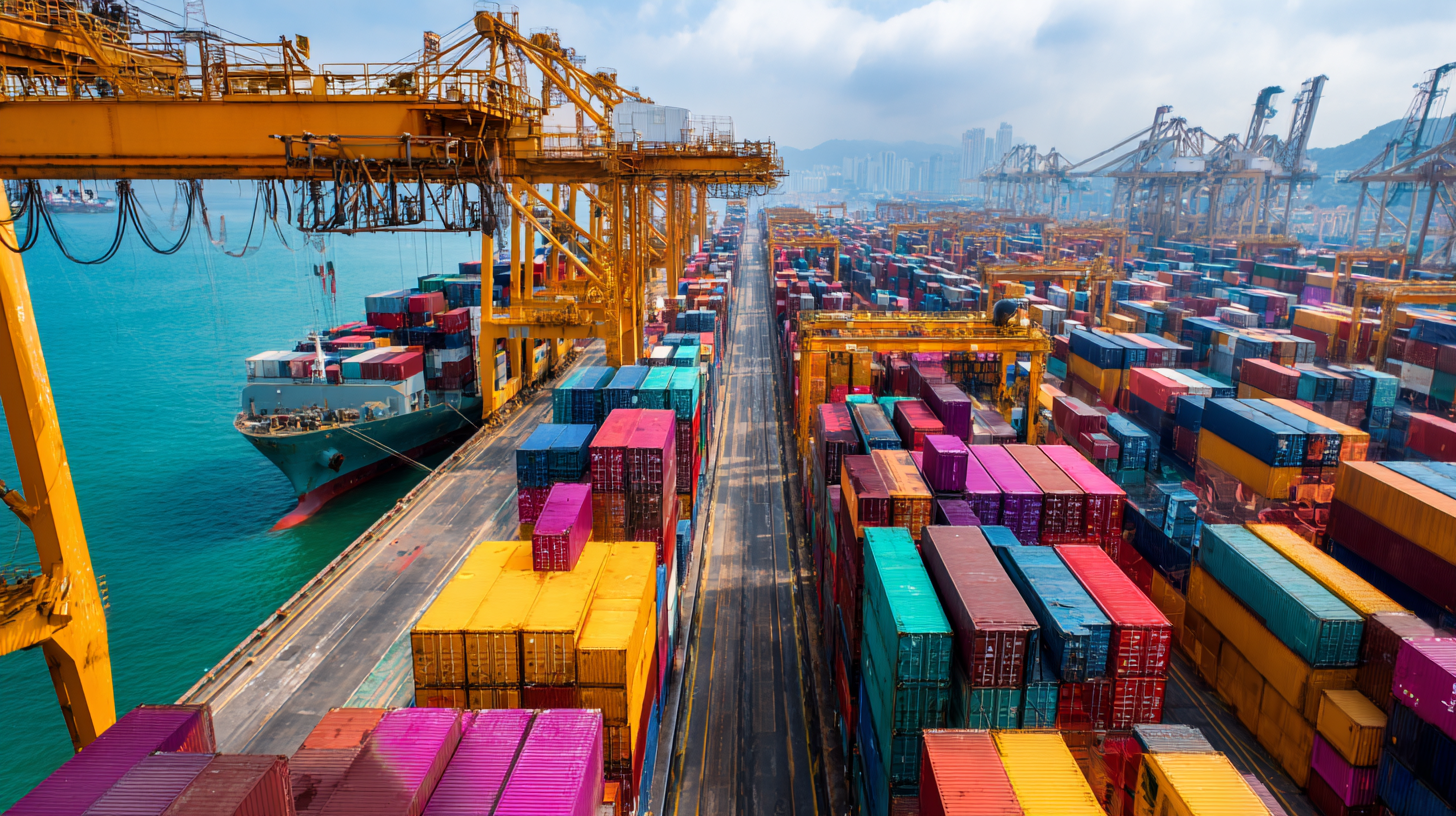


In the rapidly evolving global marketplace, the selection of the right suppliers is a crucial factor that can significantly impact the success and sustainability of any business. As we look ahead to the industry's technological trends in 2025, understanding how to evaluate and choose suppliers becomes even more essential for global buyers. This blog will provide you with a comprehensive checklist designed to streamline the supplier selection process, ensuring you identify and partner with the best suppliers worldwide. By leveraging advanced technologies and strategies, buyers can enhance their procurement process, leading to more productive relationships with suppliers that align with their business goals. Whether you are seeking sustainability, innovation, or cost-effectiveness, having a clear checklist will empower you to make informed decisions that can drive growth and competitiveness in an ever-changing landscape.

When it comes to global supplier selection, evaluating quality and reliability is paramount. According to a report by the Global Supply Chain Institute, 75% of organizations cite supplier reliability as the most critical factor in their sourcing decisions. This underscores the need for comprehensive evaluations of potential suppliers, focusing on their past performance, certifications, and compliance with international standards. Buyers must rigorously assess suppliers’ abilities to meet quality specifications consistently, as any lapse can significantly impact production schedules and customer satisfaction.

Moreover, understanding the supply chain's complexity requires an evaluation of suppliers' operational capabilities and financial stability. A study by Deloitte highlights that 60% of supply chain disruptions stem from suppliers, emphasizing the importance of partnering with reliable vendors. Global buyers should consider establishing key performance indicators (KPIs) that focus not only on immediate delivery and quality metrics but also on long-term reliability and innovation potential. By implementing these criteria in the selection process, companies can mitigate risks and ensure a steady flow of quality products from their suppliers worldwide.
Cultural differences play a pivotal role in supplier relationships, particularly in the context of global sourcing. According to a report from the International Business Culture Institute, 70% of international business failures can be attributed to misunderstandings stemming from cultural differences. Suppliers from diverse backgrounds may have varying expectations regarding communication styles, negotiation tactics, and decision-making processes. For example, while Western cultures often favor direct communication and assertiveness, many Asian cultures may lean towards a more indirect and harmonious approach. Understanding these nuances is vital for building effective partnerships and minimizing potential conflicts.
Furthermore, a study by McKinsey & Company found that companies with culturally aware management teams are 1.5 times more likely to exceed their operational performance targets. By recognizing and embracing cultural diversity within supplier relationships, global buyers can foster mutual respect and cooperation. This awareness not only enhances communication but also leads to more successful collaborations, as suppliers feel valued and understood, thus encouraging innovation and efficiency. As businesses continue to expand their global footprint, prioritizing cultural competence becomes essential to navigating the complexities of international supplier networks.
| Dimension | Description | Importance | Cultural Considerations |
|---|---|---|---|
| Quality Assurance | Evaluates the supplier's ability to meet quality standards consistently. | High | Understand local quality standards and practices. |
| Cost Competitiveness | Analyzes the pricing of the supplier relative to industry standards. | Medium | Consider currency fluctuations and local economic conditions. |
| Technical Capability | Assesses the supplier's technological advancements and capabilities. | High | Factor in local technological adoption rates and expertise. |
| Communication Skills | Evaluates the supplier's ability to communicate effectively. | High | Understanding language and non-verbal communication styles is key. |
| Delivery Timeliness | Looks at the supplier's history of meeting delivery deadlines. | Medium | Cultural attitudes toward punctuality can vary significantly. |
| Sustainability Practices | Evaluates the supplier’s commitment to environmentally sustainable practices. | Medium | Different regions have different regulations and norms regarding sustainability. |
In today's fast-paced global marketplace, the integration of digital tools into the supplier selection process has become essential for buyers aiming to streamline operations and enhance decision-making. According to a report by McKinsey & Company, companies that effectively utilize technology in their supply chain management can reduce their procurement costs by up to 20-30%. This statistic highlights the potential for digital tools not only to enhance efficiency but also to contribute significantly to cost savings.
Moreover, a study published by Gartner emphasizes that organizations leveraging advanced analytics in supplier selection can improve supplier quality assessments by around 40%. Digital platforms enable buyers to conduct thorough evaluations of suppliers' performance, compliance, and reliability, facilitating more informed choices. Utilizing these technologies, companies can visualize supplier risk factors and operational capabilities, ultimately leading to more strategic supplier partnerships and enhanced supply chain resilience in an increasingly competitive environment.
When sourcing suppliers on a global scale, it is crucial for buyers to assess not just the quality of products or services offered, but also the financial stability of potential partners. A supplier's financial health can significantly impact the long-term viability of a partnership. Buyers should examine financial statements, credit ratings, and market reputation to gauge the supplier's ability to meet their commitments. Conducting thorough due diligence helps in identifying any red flags that may signal potential risks, such as liquidity issues or inconsistent revenue streams.

Furthermore, maintaining an open line of communication with suppliers about their financial performance can foster a more transparent relationship. Regularly discussing updates, challenges, and growth plans can provide insights that help buyers make informed decisions. Establishing criteria that prioritize financial stability in the supplier selection process not only mitigates risks but also strengthens the foundation for a resilient and productive partnership, ensuring that both parties can thrive in various market conditions.
Sustainability is no longer just a buzzword; it's a crucial component in the supplier selection process for global buyers. As businesses around the world strive to align their supplier choices with global standards, it's imperative to incorporate sustainability practices into procurement strategies. The right suppliers not only help reduce the environmental impact but also enhance brand reputation and customer loyalty.
Tip: When evaluating potential suppliers, prioritize those who demonstrate transparency in their sustainability practices. Look for certifications such as ISO 14001, which indicates a commitment to effective environmental management systems.
It's also essential to assess how suppliers manage their supply chains. Businesses should favor suppliers that actively engage in ethical sourcing, waste reduction, and resource conservation. Establishing clear sustainability criteria will help filter out suppliers that do not align with your company's values.
Tip: Implement a scorecard system to evaluate suppliers based on sustainability metrics, such as their carbon footprint and waste management practices. This systematic approach not only streamlines decision-making but also fosters long-term partnerships with suppliers committed to sustainable development.